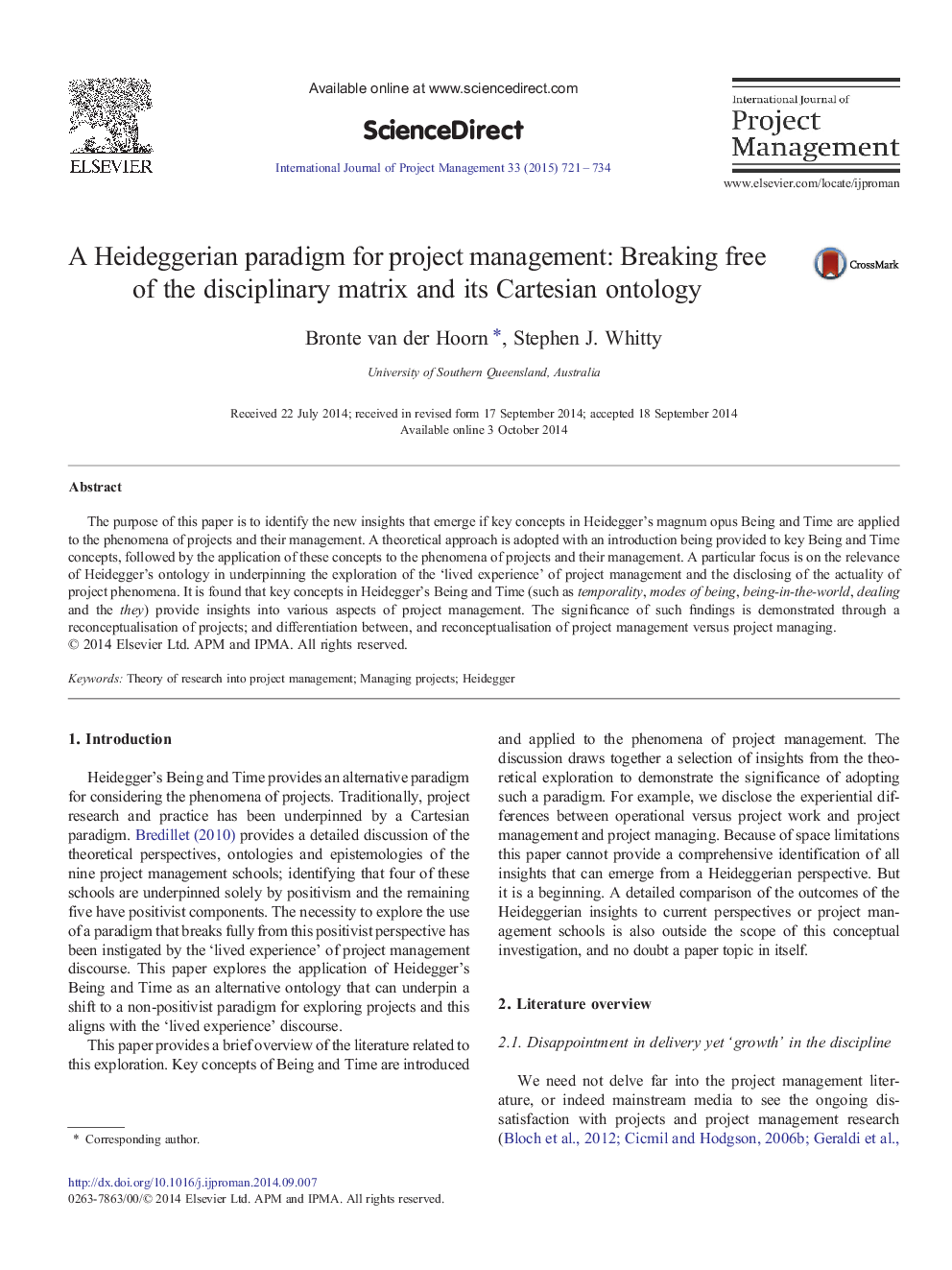| کد مقاله | کد نشریه | سال انتشار | مقاله انگلیسی | نسخه تمام متن |
|---|---|---|---|---|
| 276342 | 1429672 | 2015 | 14 صفحه PDF | دانلود رایگان |
• Heidegger provides an ontological paradigm to free PM from Cartesian dualism.
• Projects emerge when Dasein is required to deal with a break-down in their world.
• Project management has an equipmental mode-of-being.
• Project management can be ready-to-hand; unready-to-hand; or present-to-hand.
• Project managing is the action of managing the restoration of the situation.
The purpose of this paper is to identify the new insights that emerge if key concepts in Heidegger's magnum opus Being and Time are applied to the phenomena of projects and their management. A theoretical approach is adopted with an introduction being provided to key Being and Time concepts, followed by the application of these concepts to the phenomena of projects and their management. A particular focus is on the relevance of Heidegger's ontology in underpinning the exploration of the ‘lived experience’ of project management and the disclosing of the actuality of project phenomena. It is found that key concepts in Heidegger's Being and Time (such as temporality, modes of being, being-in-the-world, dealing and the they) provide insights into various aspects of project management. The significance of such findings is demonstrated through a reconceptualisation of projects; and differentiation between, and reconceptualisation of project management versus project managing.
Figure optionsDownload as PowerPoint slide
Journal: International Journal of Project Management - Volume 33, Issue 4, May 2015, Pages 721–734
